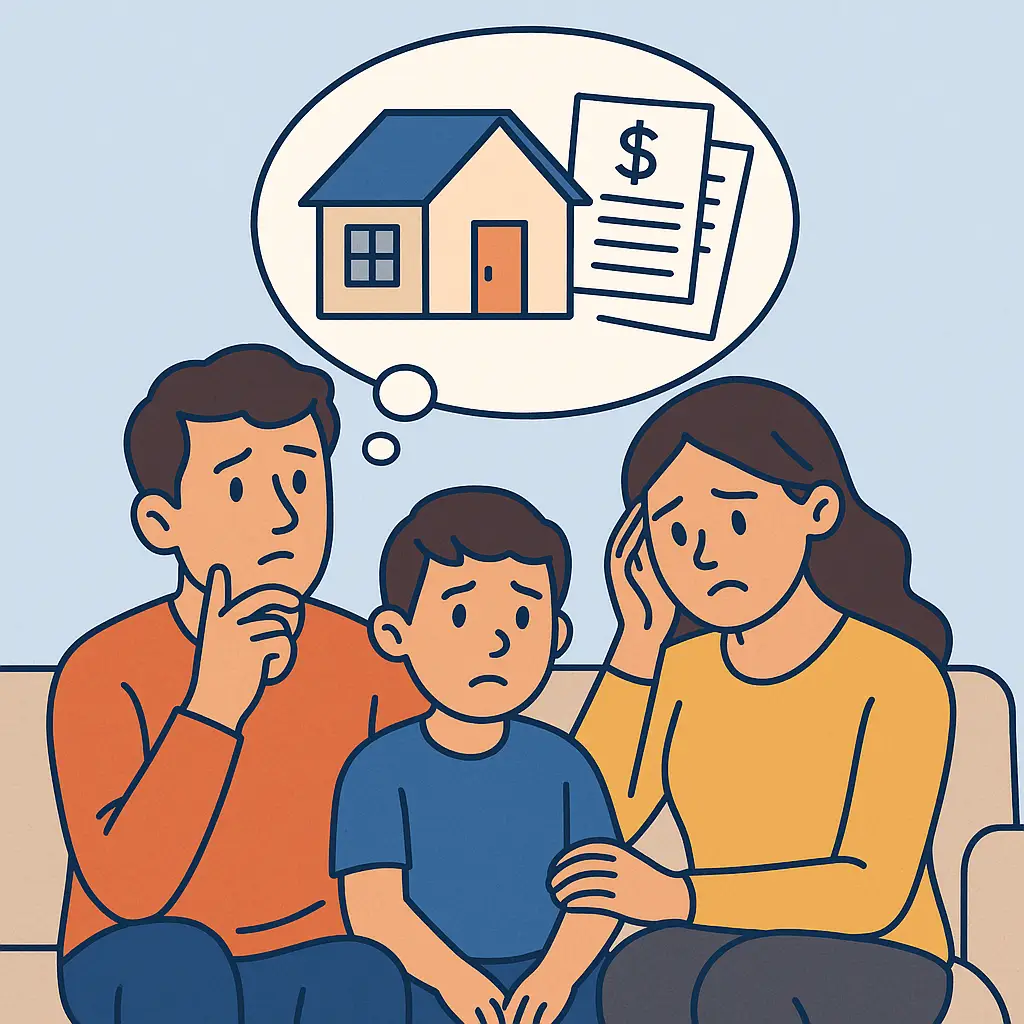Guide to Mortgage Debt in the United States
What Is Mortgage Debt?
Mortgage debt is a secured loan used to purchase or refinance real estate. The property itself serves as collateral, meaning that if you fail to make payments, the lender has the legal right to foreclose and sell the property to recover the unpaid amount.
Mortgage loans are typically long-term (15 to 30 years) and involve monthly payments that include principal, interest, taxes, and insurance (PITI). Falling behind on payments can lead to foreclosure, credit damage, and long-term financial consequences.
Why Does Mortgage Debt Lead to Foreclosure or Collections?
- Secured Nature: Lenders can legally take back the home through foreclosure.
- Large Balance: Mortgages involve high balances, making lenders more aggressive in recovering losses.
- Delinquency Triggers: Most loans are considered in default after 90 days of non-payment. However, this is not universally accurate. Federal law generally requires lenders to wait at least 120 days of missed payments before initiating foreclosure, and the definition of default can vary depending on the lender and state regulations.
- State Laws Influence Process: Foreclosure timelines and protections vary widely across the U.S.
The Mortgage Default and Foreclosure Process
- Missed Payments: One or more missed payments trigger late fees and delinquency notices.
- Notice of Default: After 90+ days, the lender may issue a formal notice of default.
- Foreclosure Initiation:
- Judicial Foreclosure: Requires court approval (used in about half of the U.S. states).
- Non-Judicial Foreclosure: Faster process, based on state law and deed of trust.
- Auction or Sale: If unresolved, the home is sold to recover the unpaid balance.
- Deficiency Judgment: In some states, if the sale does not cover the full loan, the lender may sue for the difference.
Options to Avoid or Resolve Mortgage Debt Issues
- Loan Modification: Adjusts terms to make the mortgage more affordable.
- Forbearance: Temporarily pauses or reduces payments, often during hardship.
- Refinancing: Replaces your current loan with a new one, potentially with better terms.
- Short Sale: Selling the home for less than owed, with lender approval.
- Deed in Lieu of Foreclosure: You voluntarily give the home to the lender to satisfy the debt.
- Bankruptcy: Chapter 13 may allow you to catch up on payments over time; Chapter 7 may delay foreclosure.
Consumer Rights and Protections (Mortgage Debt)
Federal Protections
- Real Estate Settlement Procedures Act (RESPA) and Truth in Lending Act (TILA) require clear loan disclosures.
- Fair Debt Collection Practices: The FDCPA does not automatically apply to all foreclosure proceedings, particularly non-judicial foreclosures. Several courts, including the U.S. Supreme Court, have ruled that the FDCPA’s protections may be limited or not apply in certain non-judicial foreclosure cases.
Foreclosure Avoidance Rights
- Servicer Requirements: Must evaluate you for loss mitigation options before foreclosure.
- Notice Periods: Federal law requires at least 120 days of delinquency before foreclosure starts.
State-Level Foreclosure Protections
- Some states require court review or mediation before foreclosure.
- Others mandate pre-foreclosure notices and waiting periods.
State Law Variations
- Foreclosure Type: Judicial vs. non-judicial varies by state.
- Redemption Periods: Some states allow you to repurchase the home after foreclosure.
- Deficiency Judgments: Not allowed in all states—check your local law.
- Licensing for Collectors: If your mortgage is in default and sold to a debt collector, licensing may apply in certain states.
States Where Debt Collectors Do NOT Require a License (as of 2024)
Georgia, Kansas, Kentucky, Michigan, Missouri, Montana, New Hampshire, Oklahoma, Pennsylvania, South Carolina, South Dakota, Tennessee, Wyoming
Licensing rules may not apply to mortgage servicers but can apply to third-party debt buyers or collection attorneys. Always verify with your state consumer affairs office.
Why Licensing and Legal Compliance Matter
- Unauthorized collectors may not legally enforce mortgage debt in certain states.
- Misleading or threatening foreclosure actions may violate federal law.
- Licensed and regulated entities must follow strict communication and servicing guidelines.
How to Verify a Mortgage Collector or Servicer
- Ask for written documentation of the loan balance and ownership
- Confirm whether the company is licensed and registered in your state
- Check the CFPB complaint database for past issues
- Consult a housing counselor approved by HUD for guidance
Options for Homeowners Facing Foreclosure
- Communicate Early: Contact your loan servicer as soon as you anticipate trouble
- Apply for Hardship Programs: Available through servicers or state/local programs
- Seek Legal Aid: Many states offer free foreclosure defense for low-income homeowners
- Explore Sale Options: If keeping the home is not feasible, selling may preserve equity and avoid foreclosure
Key Takeaways
- Mortgage debt is secured by your home and carries serious consequences if unpaid
- Foreclosure laws and protections vary significantly by state
- Homeowners have rights under federal and state law to avoid foreclosure through modification, forbearance, or other means
- Early communication and legal guidance are essential to avoid losing your home

